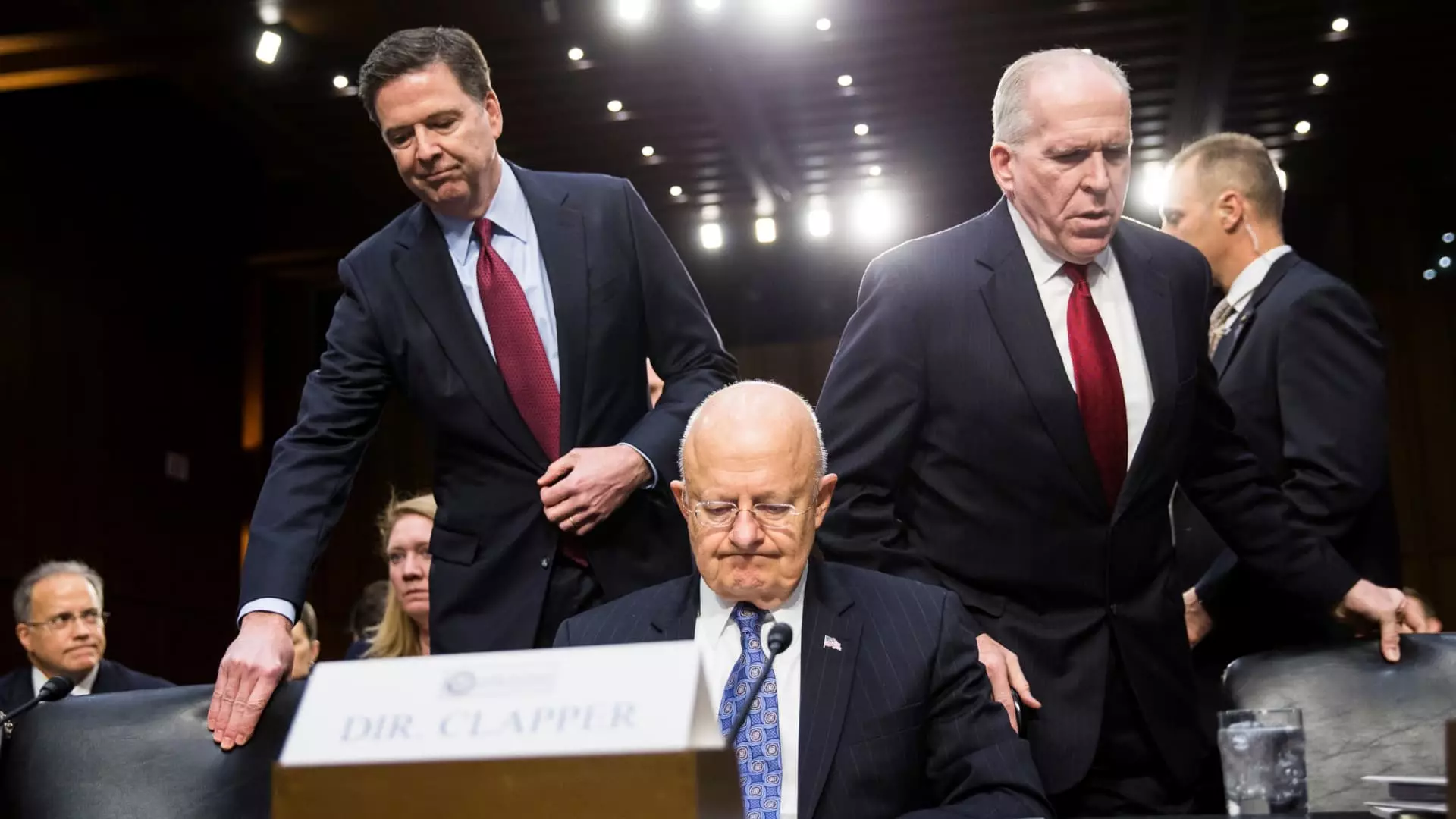In recent weeks, the United States finds itself at a precarious crossroads where the veneer of justice is threatened by overt political machinations. The administration’s decision to pursue criminal investigations against former intelligence chiefs such as John Brennan and James Comey is more than just a stark display of partisan retribution—it embodies a shifting landscape where the rule of law is increasingly compromised for political gain. The lack of transparency surrounding these investigations indicates a troubling weaponization of the justice system, undermining trust in institutions meant to serve justice equally, regardless of political affiliation.
The targeting of Brennan and Comey signals an alarming shift toward a political scorched-earth policy under the guise of legal scrutiny. This isn’t mere accountability but a calculated effort to eliminate perceived political threats. Brennan, a seasoned intelligence officer and a media contributor, and Comey, the FBI director whose tenure was marked by pivotal moments, are being scrutinized seemingly for political convenience rather than concrete evidence of wrongdoing. Such moves foster an environment where justice is weaponized to serve the interests of those in power, eroding the fundamental principle that justice should be blind and independent.
The Fragile Foundations of Justice: Selective Investigations and Political Bias
Crucially, the full scope of these investigations remains shrouded in secrecy. The Justice Department’s response—”not commenting on ongoing investigations”—only adds to the sense of opacity that fuels suspicion. Investigations that lack transparency risk being perceived as tools for political revenge rather than legitimate efforts of accountability. The absence of clear charges, coupled with the history of failed probes, such as the Durham investigation, further demonstrates how investigations driven by political agendas distort the pursuit of truth.
This pursuit of arbitrary targets is compounded by past instances where investigations failed to deliver actionable evidence but nonetheless served to tarnish reputations. The Durham probe, which scrutinized individuals like Brennan and Comey, resulted in no charges against them. Instead, it exposed the deep divisions and mistrust that have come to define this era of American politics. It’s evident that these investigations are less about uncovering truth and more about sowing discord and eroding confidence in institutions that are supposed to uphold justice and fairness.
Political Overreach and Its Impact on Judicial Integrity
The broader context reveals a disturbing trend of political overreach infiltrating the justice system. The Department of Justice and FBI’s recent memo reasserting Epstein’s death as a suicide, amid widespread skepticism, exemplifies how official narratives are often shaped to serve political comfort rather than reveal the full truth. Meanwhile, figures like Kash Patel and Pam Bondi face intense scrutiny following their handling of Epstein-related documents, highlighting how investigations are often weaponized against political opponents rather than targeting genuine misconduct.
This pattern of selective accountability threatens the very core of the justice system. When investigations become tools to punish political rivals rather than seek the truth, the public’s confidence wanes, and democratic principles are compromised. The repeated focus on the actions of Brennan and Comey—who played pivotal roles during the tumultuous 2016 election and its aftermath—suggests an intent to rewrite or distort historical narratives to favor particular political agendas.
The Endgame: Undermining Democratic Norms Under the Pretense of Justice
At its core, the ongoing targeting of these high-profile figures is less about justice and more about a broader attempt to undermine democratic norms. The pattern of investigations and dismissals signals an erosion of institutional independence and signals a dangerous precedent where justice is used as a weapon to silence political opponents. This corrosive approach threatens to reduce the justice system to a partisan tool, further polarizing a nation already divided.
The administration’s relentless focus on past investigations—investigations that, after extensive scrutiny, yielded no criminal convictions—illuminate a political obsession that prioritizes scorched-earth tactics over genuine accountability. The impact is profound: a destabilized trust in law enforcement agencies, a weakened judiciary, and a democratic process that is increasingly viewed through a lens of suspicion and bias. This convergence of political ambition and legal proceedings raises fundamental questions: Can justice be impartial when its pursuit is weaponized for political retribution? The answer, increasingly, seems to be no, and that is a perilous path for any democracy.

Leave a Reply